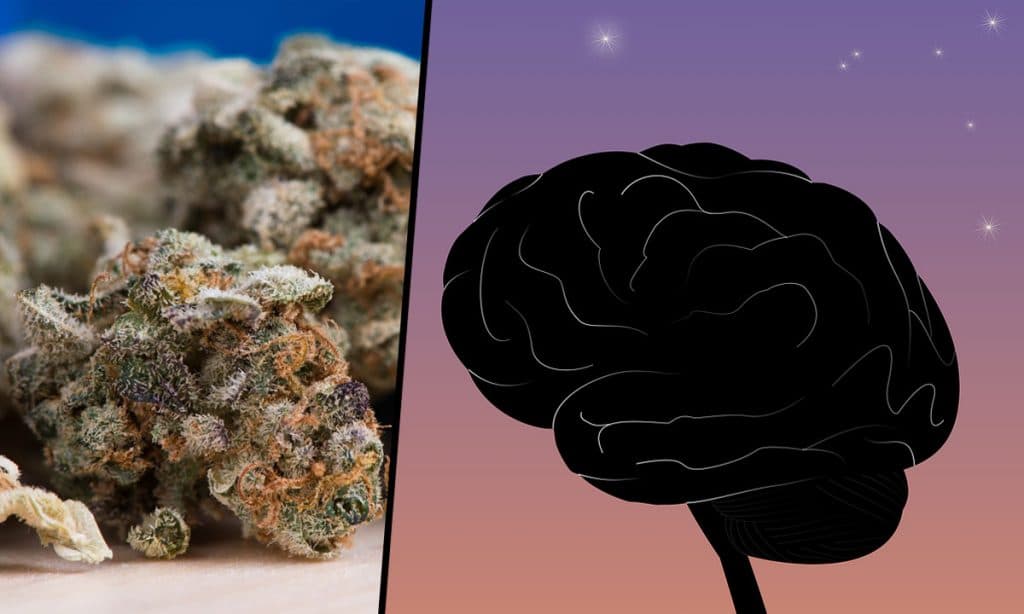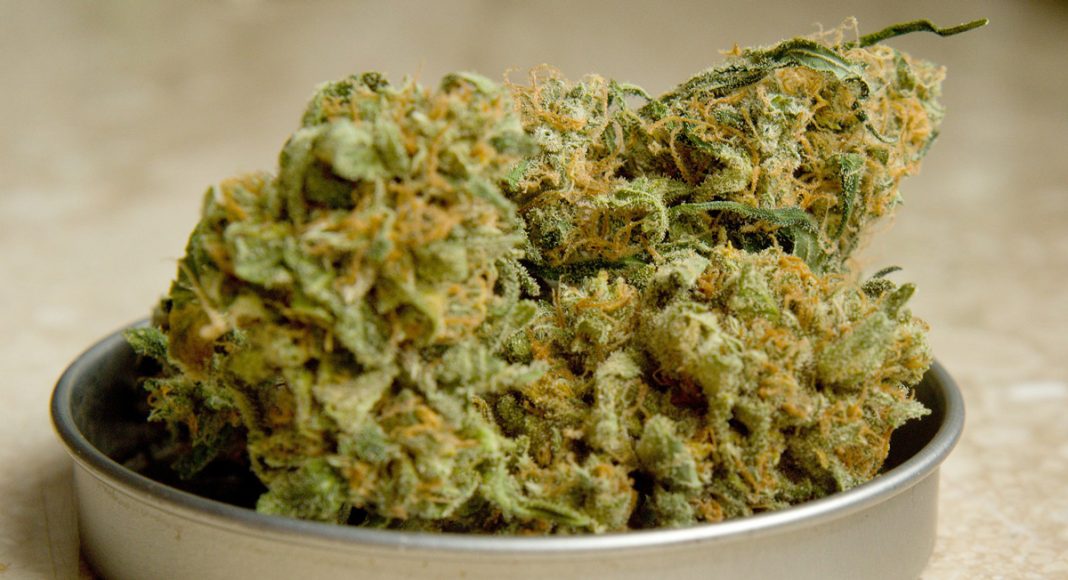Nobody can physiologically overdose from cannabis nor has there been any reported or documented deaths from a cannabis overdose in all the years the substance has been used.
In 2016, more than 40% of all U.S. opioid overdose deaths involved prescription opioids, which equates to over 46 deaths every day, according to Centers for Disease Control and Prevention. When it comes to alcohol, each year, an estimated 88,000 people die due to alcohol-related reasons. In the U.S., alcohol is the third leading cause of preventable death. Although opioids and alcohol are federally legal substances, they can be very harmful, addictive, and dangerous.
But there is one substance that while federally illegal, delivers the exact opposite effects to users: cannabis. Nobody can physiologically overdose from cannabis nor has there been any reported or documented deaths from a cannabis overdose in all the years the substance has been used. Why is this and why is cannabis different than other commonly-used drugs?
Background of The Endocannabinoid System and Its Link to Cannabis
We all have an endocannabinoid system (ECS) and an endogenous network of different cannabinoid receptors. The ECS consists of endocannabinoids, cannabinoid receptors, and different enzymes. The two main cannabinoid receptors that people may recognize are the CB1 and CB2 receptors. Then, there are various cannabinoids found within the cannabis plant, and two of the most well-known ones are CBD and THC. The cannabinoid receptors are scattered throughout our bodies, and they have a unique link to the ECS.
According to cannabis author, Martin Lee, the following was stated regarding cannabinoid receptors and where they’re most concentrated: “Cannabinoid receptors are more abundant in the brain than any other type of neurotransmitter receptor and function as subtle sensing devices.”
RELATED: If Cannabis Addiction Is Real, How Many People Are Affected?
Essentially, the ECS operates like a centralized processing center and ensures that all systems are balanced and working properly. The ECS is involved in regulating many different basic physiological processes such as memory, cognition, appetite, coordination, mood, etc. This explains why when one gets high, their thoughts, behavior, and actions are impacted. Although cannabinoid receptors are scattered throughout our bodies, they’re not present in the brainstem. Instead, they’re present in parts of the brain that regulate the different processes listed above.
How the Body and Brain React to Opioid, Alcohol, and Cannabis Consumption
Now that you know where cannabinoid receptors are located, what’s the importance of this? For one, this means that the body and brain process cannabis differently than other drugs like opioids. There’s an endogenous network of different cannabinoid receptors, but there’s also an endogenous system of opioid receptors as well. In the last couple of decades, opioid overdoses have rapidly increased, which has turned into a widespread epidemic. When individuals overdose from opioids, the brain fails to breathe since opioids depress a part of the brainstem. When this happens, breathing significantly slows down, and then the individual stops breathing entirely, which results in death from oxygen deprivation.

Additionally, opioids can weaken certain regions of the brain, especially regions that control blood and heart circulation. Due to this weakening, one’s blood pressure can plunge to unsafe levels. Regarding other substances like alcohol, overdoses and deaths can occur. When one dies from an alcohol overdose, the body is unable to get rid of the excess alcohol from the liver. From here, alcohol makes its way to certain brain regions and disrupts the same areas that opioids do aka the parts that regulate breathing, blood, and heart circulation. Then, this causes those regions of the brain to completely shut down.
Whereas, with cannabis, the opposite occurs. Since cannabinoid receptors aren’t present in the brainstem, the parts of the brain that control breathing, blood pressure, and heart rate aren’t affected by cannabis consumption. In the past, it was found that our brains produce a hormone known as pregnenolone, which acts as protection from cannabis’s psycho-active effects. Once THC binds to the appropriate receptors, pregnenolone is produced and released, which hinders the impact THC has on the brain. Thus, many people believe that this can prevent cannabis consumers from getting too high.
Overall, the brain works differently when cannabis is consumed as compared to when other substances are consumed. When cannabis is ingested, the chemicals within it spread into the body’s central nervous system, the brain, and they attach to the body’s cannabinoid receptors. However, it’s still possible for people to get high to the point of experiencing paranoia, anxiety, psychosis, and even hallucinations.
Why It’s Physiologically Impossible to Die from Cannabis
In addition, one reason why someone cannot physiologically overdose from cannabis is because of the body’s ability to create its own ‘endogenous’ cannabinoids, which are also found in the cannabis plant. In general, cannabis has a very low toxicity, and it presents extremely minor physiological risk, especially in comparison to other drugs like tobacco, alcohol, and opioids. It’s not possible to consume a lethal dose of cannabis and die. Also, certain cannabinoids like CBD have an incredible safety profile as well as a non-addictive and non-toxic makeup.
RELATED: Proof That Marijuana Is More Than 100 Times Safer Than Alcohol
Thus far, according to the Centers for Disease Control & Prevention, there have been zero reported nor documented overdose deaths due to cannabis usage. This is mostly due to cannabinoid receptors located in areas other than the brainstem. Hypothetically, in order for someone to die from cannabis, one would have to ingest 1,500 pounds of the herb in fifteen minutes, according to David Schamder, a popular cannabis author.
What to Do If You’re Too High

Moreover, although an individual cannot overdose and die from cannabis consumption, they can still get extremely high. If one consumes too much cannabis, it’s possible to feel anxious and experience shaking hands and an increased heart rate. However, this feeling will pass, and eventually, the high will wear off. In the meantime, there are a few tips you can try if and when this happens to you or a loved one. For starters, don’t panic because this will make everything worse and more stressful. A handful of other tips include the following:
- Take a nap or lay down
- Drink water to stay hydrated—several glasses of water can help counteract the high and help lessen negative effects
- Eat some of these snack foods—nuts, seeds, coconuts, avocados, or fruit
- Talk to a friend or loved one who can calm you down
- Listen to relaxing music or sounds that soothe you
- Munch on some black peppercorns—some people have reported that chewing peppercorns have counteracted the effects caused by too much THC
- Consume CBD — It’s has been found to counteract the effects of too much THC
In sum, although it’s possible to get very high and experience adverse effects if too much THC is consumed, one cannot overdose and die from cannabis unlike other drugs. Thanks to our endocannabinoid system and the special placement of cannabinoid receptors, physiologically, cannabis usage doesn’t lead to fatality. If you’ve ever been uncomfortably high before, you understand that eventually, the high wears off, and your body balances out. Comment below about an experience of yours where you were too high and what helped you get through it.


